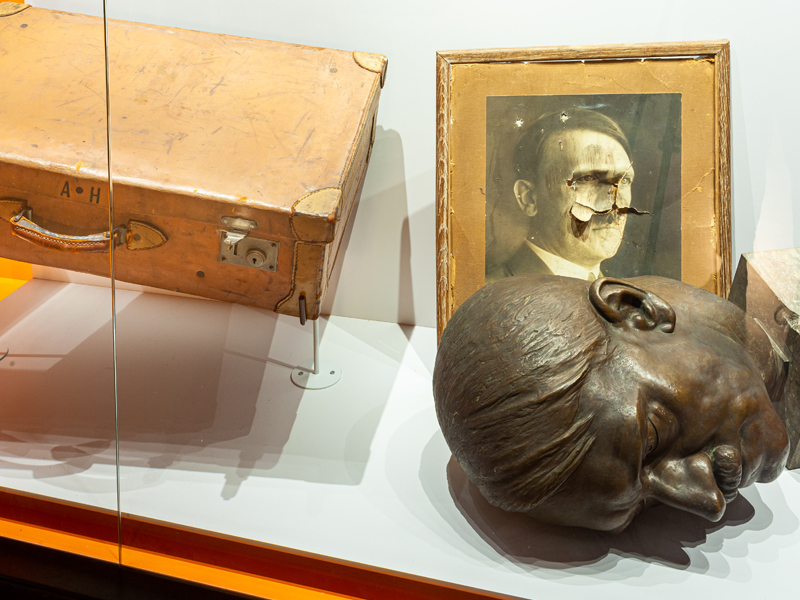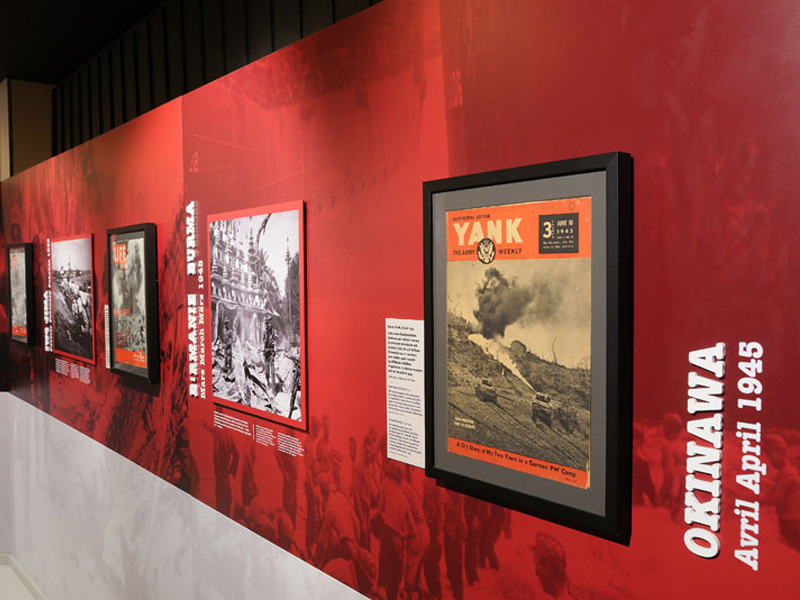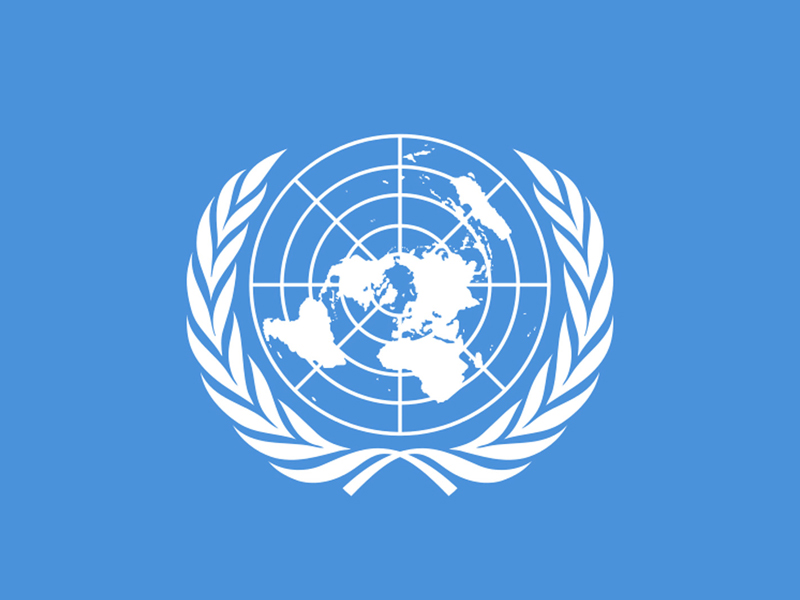
After Hitler committed suicide, the act of capitulation was signed, effectively ending the war in Europe.
In March 1945, Germany was invaded from both the East and the West. The Wehrmacht mustered its remaining forces to try to halt the advancing Soviet armies, which had reached the Oder. To the West, the Anglo-American forces crossed the Rhine. Despite Churchill’s reservations, Eisenhower allowed the Soviets to take control of Berlin. Hitler, entrenched in the air raid shelter of the chancellery, took his own life on April 30. General Jodl signed the act of capitulation on May 7, in Reims. The following day, a second solemn surrender took place in Berlin at the request of Stalin, marking the end of the war in Europe.

The Americans advanced in the Pacific and the Far East. They dropped atomic bombs on the cities of Hiroshima and Nagasaki.
In January 1945, the Allied armies waged an all-out war of attrition against the Japanese troops in the Pacific and the Far East. The Philippines, New Guinea, and Burma were reconquered. Continuing their advance on Japan, the American troops took Iwo Jima and Okinawa, two victories that brought the Japanese archipelago within range of Allied fire.
For political and military reasons, President Truman decided to use the atomic bomb despite negotiations in progress with the Japanese government. On August 6 and 9, two A bombs were dropped on Hiroshima and Nagasaki. At the same time, Moscow declared war on Tokyo and attacked Manchuria.
On August 15, Emperor Hirohito of Japan asked his people to “accept the unacceptable”; the act of capitulation was signed on September 2 aboard the American battleship Missouri.

During this world war, violence reached a climax. The strategy of terror, the continual discovery of mass graves, the horror of the concentration camps, and the growing awareness of the genocide gave rise to deep and lasting violence, as well as an intense moral shock. The industry of death and fears of a nuclear apocalypse waylaid hopes of continued scientific progress.
Total war on a global scale had profoundly changed the global situation. The most murderous act of carnage known to history provoked such trauma that the Allies brought the Axis leaders before international courts. The determination to build a new world order to ensure sustainable peace led to the creation of the United Nations (UN) in June 1945.